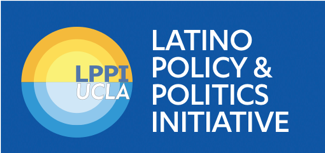Posts

LPPI Staff Bring Insights and Accountability to Policymaking
New UCLA LPPI Staff Bring Insights and Accountability to Policymaking…

UCLA LPPI Brief Finds L.A. Black & Latino Neighborhoods Lack Resources During Safer-at-Home Order
On May 19, 2020, UCLA's Latino Policy and Politics Initiative,…

